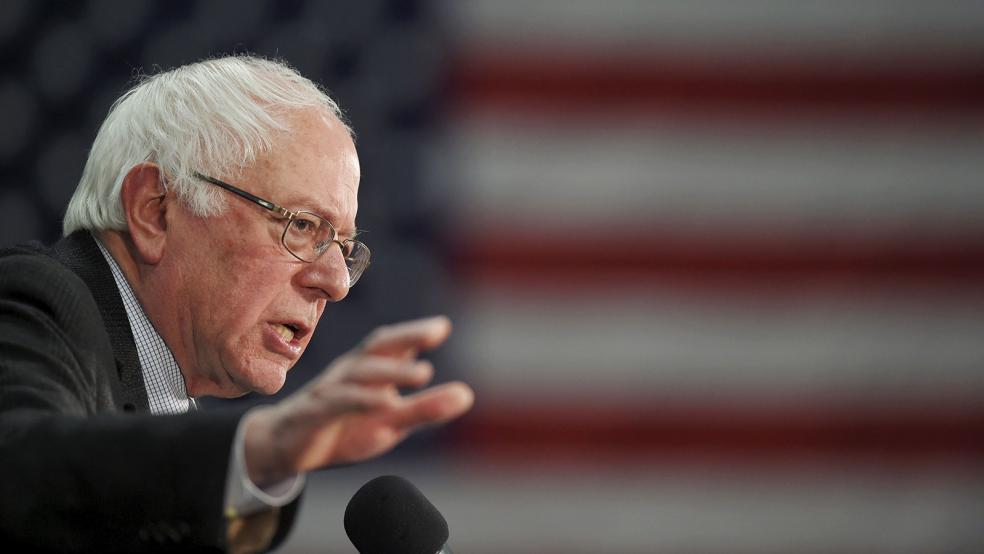Bernie Sanders has said from the start of his campaign for president that it’s an outrage that U.S. expenditures on health care are three time more per capita than those of Great Britain and 50 percent greater than those of France as a share of the overall economy. Yet this country has poorer results than most other European countries on key health care outcomes.
The senator from Vermont has yet to unveil his plan for single-payer, national health insurance program along the lines of those in Europe and Canada – or say how many trillions of dollars it would cost taxpayers. Nor has he acknowledged that health care is rationed in those countries, with long waiting lines for joint replacements, restrictions on fertility treatments, and in some cases, no access to certain expensive drugs and tests.
Related: Will Sanders’ Proposals Make Him the $18 Trillion Candidate?
While the U.S. is the only developed country without a publicly financed health system, it’s also one of the few countries where doctors pay for their education and often start earning at around age 30 saddled with $500,000 in student debt. Still, the U.S. spends more public dollars on health care than all but a few other countries, Sanders, a Democratic Socialist notes.
“First question we have to ask is should health care be a right of all people or should it not?” Sanders said on Wednesday during an appearance on MSNBC’s Morning Joe. “I think it should. We've decided public education is a right. You don't have to be rich to go to high school. We should make that determination. Every other major country on earth has done it.”
On a day when the Republican-controlled House voted for roughly the 60th time time to dismantle the Affordable Care Act, the challenger to Hillary Clinton for the Democratic presidential nomination offered a vigorous defense of Obamacare.
“Here is what the Affordable Care Act did,” Sanders said. “No. 1, it ended this obscenity of preexisting conditions. People would look back and say I can’t believe that we had a situation where you needed health care for a particular illness and you couldn’t get it from your insurance company.”
Related: Sanders' Big Spending Plans Would Reinvent the U.S.
In the process, he added, President Obama’s signature program of subsidized private insurance coverage and expanded Medicaid services for the poor has benefitted 17 million previously uncovered Americans.
Still, Sanders contends that Obamacare was a “small victory” for the uninsured, and should be followed by adoption of universal healthcare along the lines of “Medicare for all.” Under his approach, all Americans – regardless of age or income levels -- would be entitled to the same level and quality of coverage provided under the government’s major health insurance program for seniors.
While Sanders has yet to provide the details and likely long-term cost of his plan, his campaign says he would amend the tax code to create the American Health Security Trust Fund, which would be financed by various tax revenues, credits and subsidies. The Wall Street Journal earlier this year projected that Sanders’ government-run health care plan would cost $15 trillion over the coming decade.
“It’s not set in stone, but the tax revenues in the draft include a new healthcare income tax, an employer payroll tax, a surcharge on high-income individuals, and a tax on securities transactions,” according to a campaign document. “So, basically, it’s not wishful thinking at all. But, more importantly, single-payer healthcare controls costs and so would save us money in the long run.”
Related: Clinton Seizes Control of the Democratic Campaign
Sanders argues a single-payer system would allow the government to negotiate more reasonable prices for basic medical services and prescription drugs. Both Sanders and Clinton are calling for programs to control prescription drug costs and prevent price gouging.
Sanders also contends a single-payer plan would encourage doctors to practice in fields where help is needed the most – mainly primary care, family medicine and pediatrics.
In criticizing the role of private health insurance in the country, Sanders told MSNBC today that companies are less concerned about providing quality affordable health care than “to make as much money as they possibly can.”
“We’re going to have to make the decision to say, I’m sorry, we can’t make money out of health care,” he said. “We're very weak in primary health care. People cannot find the doctors that they need, so they get sicker and end up in the emergency room.”
“What we need to do is greatly expand primary health care, put money into disease prevention, and come up with a system which is not designed to make the drug companies and insurance companies rich, but to provide quality care to all of our people.”





